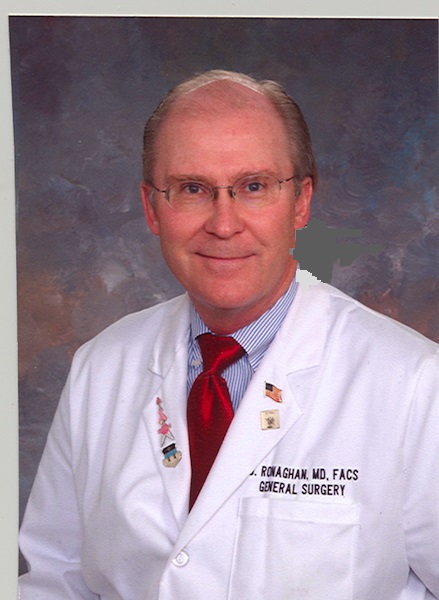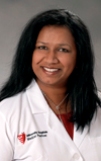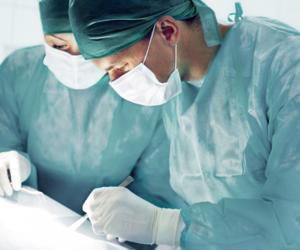“Having my gallbladder removed - will my life be different after?”
I am having my gallbladder removed. I am nervous to adapt afterwards. What should my future diet be like? What will I need to avoid forever?
18 Answers
SurgeonGallbladderSurgery
85% of patients can eat their normal diet after gallbladder surgery. 15% have to pay attention to their fat intake which is too high processes diarrhea.
Consult Functional Medicine. The quality of your life will depend on your comorbidities going into surgery, such as, obesity, diabetes, and anemia.
There are a lot of foods and drinks and habits you will have to quit and adjust to but it will be better than it was before.
There is no special diet required after gallbladder removal. For further Information, visit our website www.Mivendoklinik.de.
Following a gallbladder operation, your body will need some time to adjust to the new change. It will be important to keep your diet fat-free and slowly, in a few months or more, you go back to your normal diet. Keep an eye out that your diet is good for your overall wellbeing and health. Your body sometimes will dictate to you what it can tolerate or not after surgery. Usually, you should be able to eat normal as before.
You will resume your normal life including a normal diet, shortly after your gallbladder is removed.
In most cases your life improves significantly after gall bladder surgery. Very few people have any digestive issues, and unless they have a diet restriction due to some other medical condition, most patients can resume a normal, unrestricted diet without difficulty.
Joseph E. Ronaghan, MD, FACS, FICS
Associate Professor, Dept. of Surgery
Joseph E. Ronaghan, MD, FACS, FICS
Associate Professor, Dept. of Surgery
Most of the patients recover fully without dietary restrictions. Rarely few patients will develop pain like GB stones because of the stone in the duct from the liver to small bowel, which can be removed by an expert endoscopist.
Most people will return to normal and be able to eat whatever they want. On occasion, patients have problems with high fat or high oil foods postoperatively. I always suggest trying whatever you like and see how you do. You will not mess anything up.
Brett D. Solomon, M.D.
Brett D. Solomon, M.D.
Thako H. Mokgalaka
Surgeon
Having your gallbladder surgery is a wake-up call for your health. Most people get devastating illnesses without warning e.g. heart disease or death due to stroke. Risk of having devastating health problems are low if you consult your dietician for advise on diet and exercise and a regular medical checkup should suffice. With advanced surgical innovations, mortality related to removal of gallbladder is very low without comorbidity. Laparoscopic cholecystectomy is a safe procedure,hospital stay is about two days. Relax.
Depends on the reason you are having it removed. The most common indication for cholecystectomy is symptomatic gallstones. If that is the indication, chances are that your gall bladder is not functioning well as it is. Thus, there should be no digestive consequences to removal. Rarely some will report looser stools or flatulence after cholecystectomy. This is usually self limited. Patients who have these symptoms for a long period of time after cholecystectomy likely have another problem unrelated to gall bladder removal such as IBS, Colitis, etc,.
Everyone has a different experience after gallbladder removal. MOST (>90%) have no issues whatsoever. You should be able to eat whatever you want and not avoid anything long term. Up to about 20% of patients may have some diarrhea or bloating sensations after surgery but usually not for more than a few weeks. Reducing fatty foods after surgery may help with this IF it occurs. All in all, you shouldn't feel any different after surgery except that your gallbladder is no longer bothering you.
Once your gallbladder is removed, most dietary restrictions you had prior to surgery such as adhering to a low fat diet are lifted.
That being said, a handful of patients experience loose stools for a few weeks after their gallbladder is removed. In those instances, I recommend that patients do adhere to a low fat diet till the loose stools resolve. This usually is self limited and resolved within a few weeks.
That being said, a handful of patients experience loose stools for a few weeks after their gallbladder is removed. In those instances, I recommend that patients do adhere to a low fat diet till the loose stools resolve. This usually is self limited and resolved within a few weeks.
You should not need to restrict your diet significantly after surgery. About 1/3 of patients will get diarrhea after surgery, especially when eating fatty, greasy, or oily foods. If this does occur, it resolves in 99% of people within 3 months. I have had 1 of my last 200 patients that have had their gallbladder removed require medication for this problem.
What was a healthy diet for you before surgery should remain a healthy diet for you after surgery.
What was a healthy diet for you before surgery should remain a healthy diet for you after surgery.
You will possibly notice a difference In Diarrhea occurring after fatty,
fried or cheesy foods. Usually this improves after first month. Many
patients note no changes at all
Hope this helps
fried or cheesy foods. Usually this improves after first month. Many
patients note no changes at all
Hope this helps
In general, your dietary restrictions come prior to your surgery since fatty meals or meals rich in certain food substances will precipitate an attack. After surgery, your diet will be open to almost anything.
I will offer up one concern. Approximately one patient in five, MAY have troubles with post-prandial bowel cramps and diarrhea, an untoward effect which is likely to disturb you. There is however, a remedy. Cholestyramine can put a fix on that issue.
I will offer up one concern. Approximately one patient in five, MAY have troubles with post-prandial bowel cramps and diarrhea, an untoward effect which is likely to disturb you. There is however, a remedy. Cholestyramine can put a fix on that issue.
















